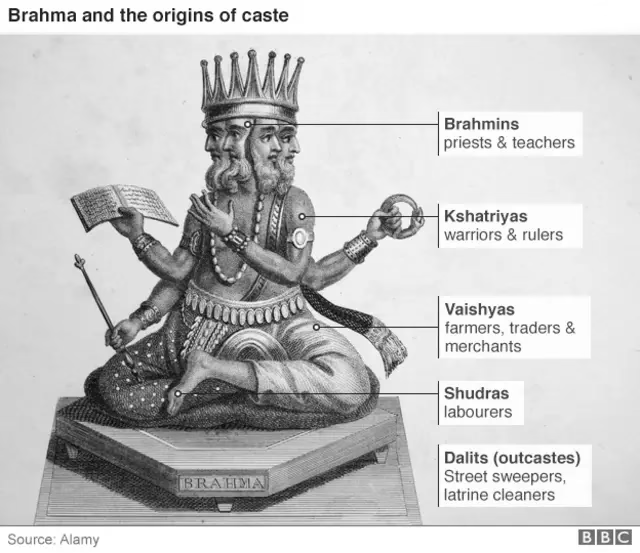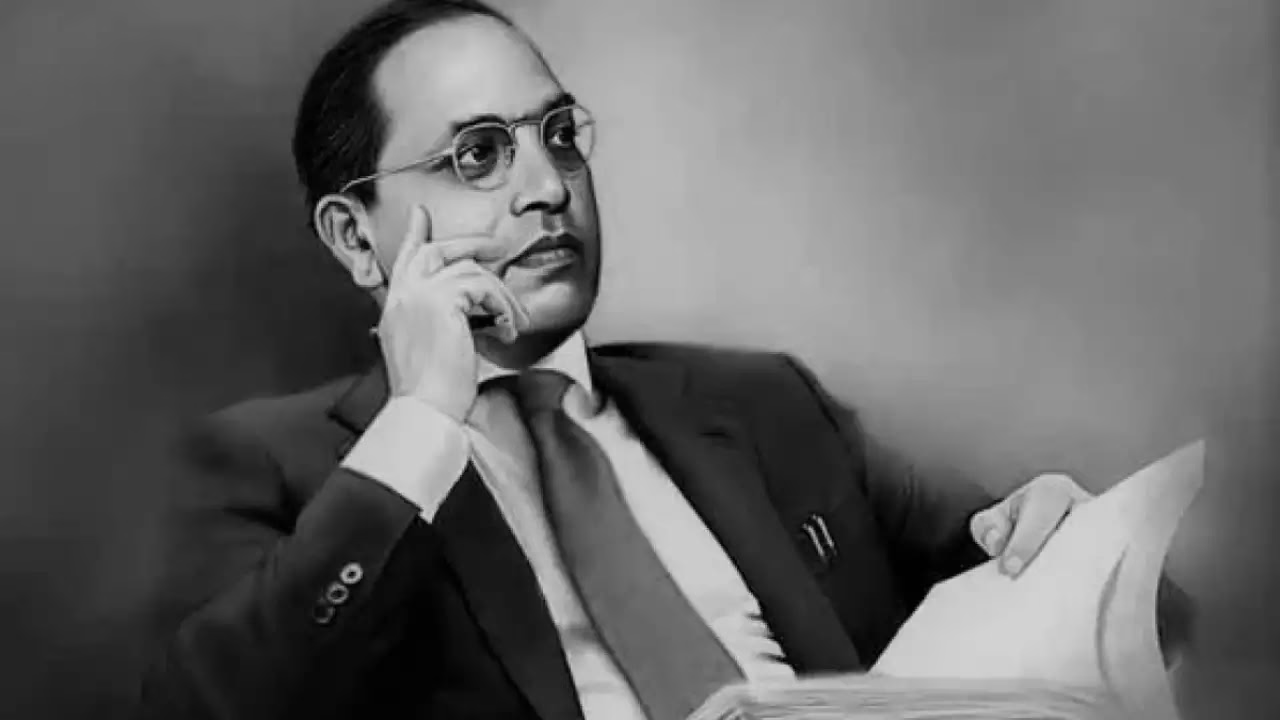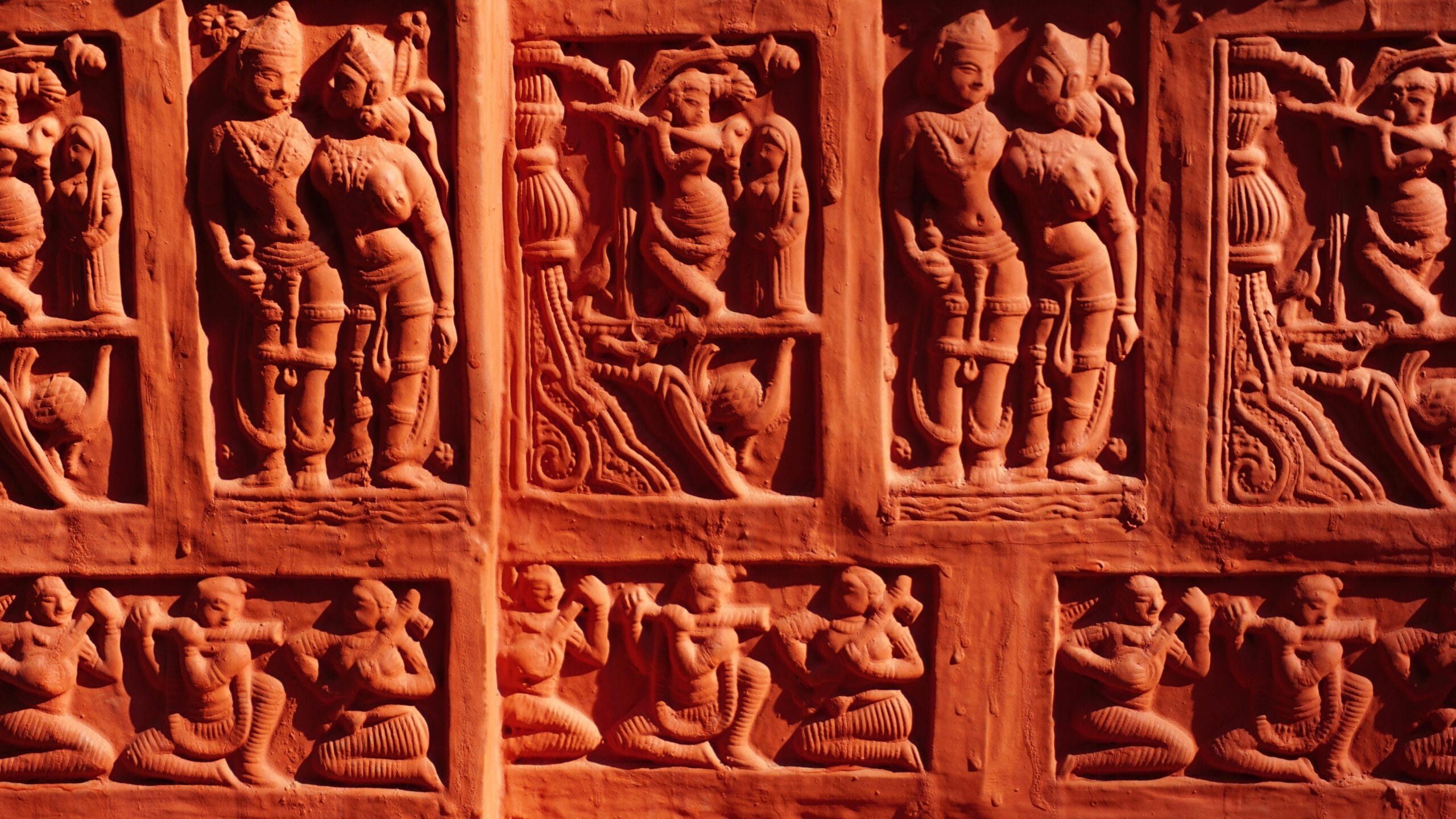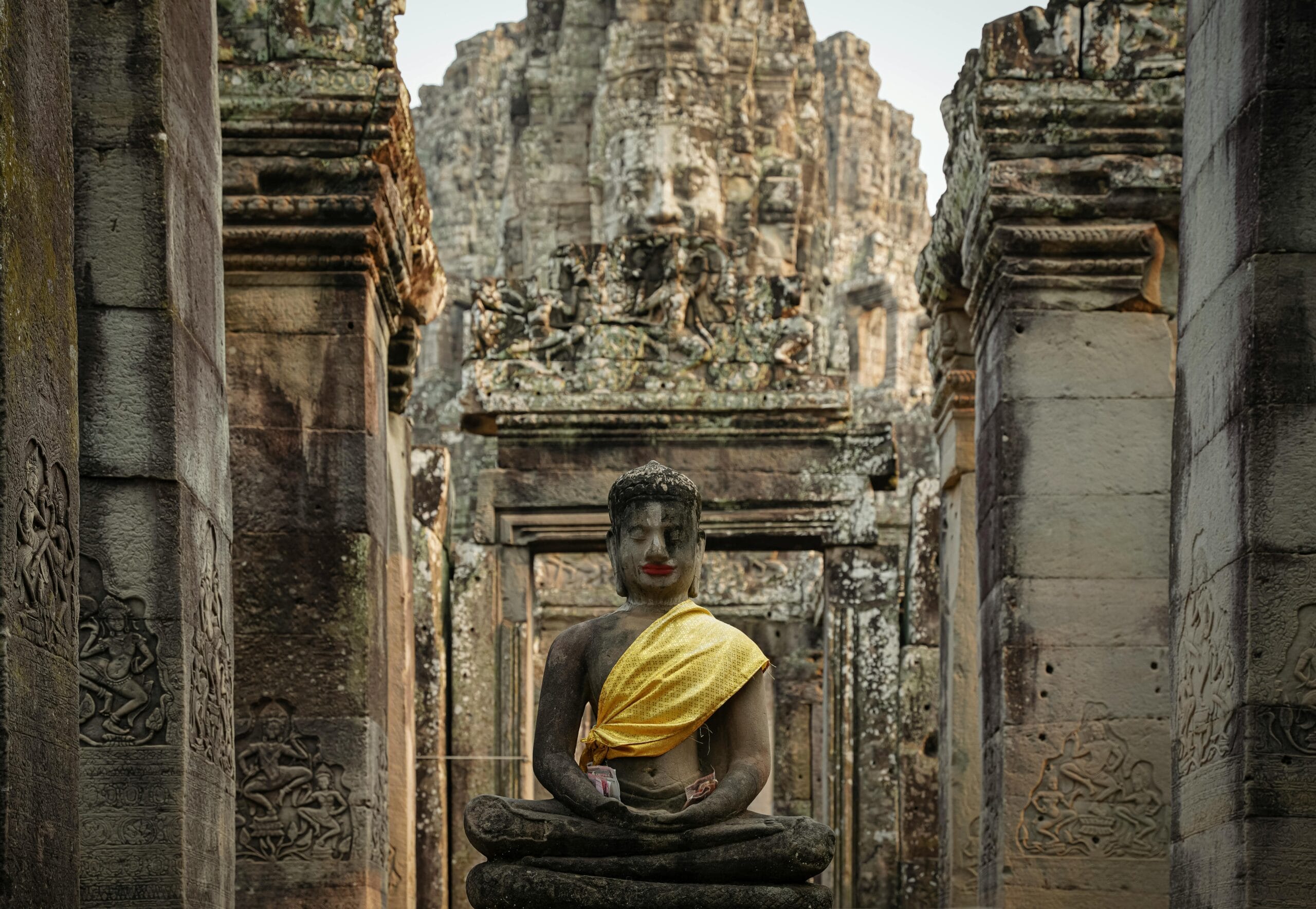Dr. B.R. Ambedkar’s influence extends beyond India, yet many in Pakistan, particularly minorities, are unaware of his contributions. This article introduces this influential figure, addressing caste-based discrimination rooted in an ancient institution, not religious hatred. We explore the life, philosophy, and enduring impact of Dr. B.R. Ambedkar, a champion of equality and social justice, focusing on his fight against caste discrimination.
Table of Contents:
- Disclaimer
- Early Life and Education of B. R. Ambedkar
- Political Career Of Dr. Ambedkar
- The Constitution of India by Dr. Ambedkar: A Framework for Equality
- Vision of Dr. Ambedkar for Social Justice
- The Hindu Code Bill and Women's Rights by Dr. Ambedkar
- Conversion to Buddhism by Dr. Ambedkar
- Legacy of Dr. Ambedkar
- Lessons from an Encounter
- Pakistan's struggle
- What Can You Do?
Disclaimer
Let’s clarify some terms used in this article:
- Dalit: People formerly considered untouchable in the Indian caste system.
- Caste System: A hierarchical social structure dividing people based on heredity. Imagine it as a company where promotions depend on family, not performance, stifling talent and creating resentment.
- Shudra: The lowest of the four traditional divisions of Hindu society.
- Untouchability: The practice of ostracizing and segregating a group of people, restricting them from touching other castes.
Early Life and Education of B. R. Ambedkar
Birth and Family
Born on April 14, 1891, in Mhow, Bhimrao Ramji Ambedkar, later known as Babasaheb Ambedkar, came from a humble background. His father, Ramji, served in the military school, and his mother was Bhima Bai.
Academic Pursuits
Ambedkar’s pursuit of knowledge led him to Columbia University and the London School of Economics. He earned double doctorates, becoming one of the most educated individuals of his time.
Library
His library contained 50,000 books at his death. He shared knowledge but didn’t lend books, inviting others to read with him.
Political Career Of Dr. Ambedkar
Bahishkrit Hitkarini Sabha
In July 1924, Ambedkar founded the Bahishkrit Hitkarini Sabha, also known as the Depressed Classes Welfare Association, to raise awareness among the marginalized.
He launched publications like “Bahishkrit Bharat” and “Mook Nayak” (Leader of the Silent) to amplify marginalized voices.
Legislative Council
In 1927, he received a nomination to the Bombay Legislative Council, marking his entry into formal politics.
Government Law College
In 1928, Ambedkar served as a professor at the Government Law College. During his lectures, high-class students hesitated to study under him because of his caste. He offered them the option to leave, but nobody left the class.
All India Untouchability League
In 1932, he established the All India Untouchability League to combat untouchability.
Principal of Bombay Law College
In 1935, he became the principal of Bombay Law College.
Constituent Assembly
In 1946, Ambedkar was elected to the Constituent Assembly of India from Bengal. He was appointed chairman of the drafting committee, making him the architect of the Indian Constitution.
Minister of Law
In 1947, he served as the Minister of Law in Prime Minister Jawaharlal Nehru’s cabinet but resigned a year later due to disagreements over the Hindu Code Bill.
The Constitution of India by Dr. Ambedkar: A Framework for Equality
Drafting Committee
Appointed as the chairman of the drafting committee on August 29, 1947, Ambedkar played a pivotal role in shaping the Constitution of India. Although the committee comprised seven members, the responsibility of drafting largely fell on Ambedkar due to various circumstances.
Challenges
India, lacking a unified political identity and grappling with the aftermath of partition and Hindu-Muslim tensions, presented significant challenges. Ambedkar’s task was to ensure equal rights for the marginalized and establish a functioning democracy.
Fundamental Rights
Ambedkar championed fundamental rights, aiming to provide equal opportunities and freedom of religion. The abolition of untouchability and the freedom of speech were crucial components of his vision.
Empowering Women
He advocated for the economic and social empowerment of women, ensuring their right to vote and equal status in society. He recognized the need to transform the patriarchal structure of society to achieve true equality.
Flexibility
Recognizing India’s diverse nature, Dr. Ambedkar ensured the Constitution was flexible, allowing for amendments.
Vision of Dr. Ambedkar for Social Justice
Reforms
Ambedkar strived for social reforms, advocating that the priesthood should be based on merit rather than birth. He believed that religious leaders should be servants of the state, subject to disciplinary actions if they discriminated against anyone.
Critique of the Varna System
He strongly opposed the Varna system, which divided society into Brahmins, Kshatriyas, Vaishyas, and Shudras, as it perpetuated inequality and discrimination based on birth.

Abolition of the Caste System
Ambedkar advocated for the complete elimination of the caste system, emphasizing that one’s identity should be based on education, competence, and capabilities rather than caste.
Policy and Openness
He supported inter-caste marriages and believed that state policies should be open to all, regardless of caste. He envisioned a society where caste was erased, and everyone had equal opportunities.
The Hindu Code Bill and Women’s Rights by Dr. Ambedkar
Push for Equality
Ambedkar persistently advocated for the Hindu Code Bill, aiming to codify and reform Hindu personal laws to grant women greater rights.

How can a society truly progress if half of its population is denied basic rights? This included rights related to marriage, divorce, inheritance, and adoption. His commitment to these reforms led to disagreements with Nehru and ultimately to his resignation.
Views
He aimed to create a society where men and women were equal, understanding that societal transformation was necessary to achieve this vision.
Conversion to Buddhism by Dr. Ambedkar
World Buddhist Conference
In 1949, Ambedkar participated in the World Buddhist Conference in Kathmandu and Rangoon.
Bharatiya Bauddha Jan Sangh
In 1950, he founded the Bharatiya Bauddha Jan Sangh and was re-elected to the Rajya Sabha in 1952.
Bharatiya Bauddha Samaj
In 1955, he established the Bharatiya Bauddha Samaj.
Rejection of Hinduism
Ambedkar famously declared, “I was born a Hindu, but I will not die as one.” He renounced Hinduism on October 14, 1956, in Nagpur and embraced Buddhism along with approximately 500,000 followers.

Legacy of Dr. Ambedkar
Death and Bharat Ratna
Ambedkar passed away on December 6, 1956. In 1990, the Indian government posthumously awarded him the Bharat Ratna, India’s highest civilian honor, recognizing his immense contributions to the nation.
Books
Some of his notable books include “The Problem of Rupee”, “Annihilation of Caste”, “Thoughts on Pakistan”, “Who Were the Shudras?”, and “The Buddha and His Dhamma”.

Dr. B.R. Ambedkar’s “The Problem of the Rupee: Its Origin and Its Solution” (1923) is a seminal work analyzing the complexities of India’s currency system in the context of British colonial rule.
1. In this book, Ambedkar meticulously traces the evolution of the Indian rupee, highlighting the instability and challenges inherent in its link to the gold standard and the exchange rate policies of the British government.
2. He argued that the existing system was detrimental to India’s economic interests, particularly affecting agriculture and trade. Ambedkar proposed a solution centered around establishing a stable and independent currency system for India, advocating for a gold standard with a fixed exchange rate that would be managed in India’s best interests, rather than being dictated by colonial priorities.

“Indifferentism is the worst kind of disease. ” Dr B. R. Ambedkar was a politician and social reformer. He was the chief architect of the Constitution of India and the first law minister of India. He has written a series of essays where he has spoken about untouchability and Hinduism. Determined to put an end to the social stratification, Ambedkar published annihilation of caste (1936) where he denounced the caste system. The treatise elaborates the persecution people of the lower strata underwent. Ambedkar questions The restrictions on inter-caste relationships and opines that the caste system prevailed due to endogamy. Modern India fondly remembers Ambedkar for his determination that elevated the status of the marginalised and gave them persistent hope.

This book is a treasure trove of knowledge. It shows the vision of Dr. B.R. Ambedkar and anticipations of the problems of partition.
The present generation of youth needs to read this book because it reveals a lot of intentionally hidden information. It is the best book to gain insight into the horrors of the partition and will surely compel thereaders to think about how and why India was partitioned and it also exposes the true nature of the sinister minded people and their disgusting hypocrisy. Surely, one of the great books written by Dr. Ambedkar, the Father of our Constitution.
“Any Government which denied this elementary right of freedom of speech and freedom of action did not deserve allegiance from the people.”
— Dr. B.R. Ambedkar

“Who Were the Shudras?” by Dr. B.R. Ambedkar investigates the origins and historical role of the Shudra caste in India, focusing on their social, economic, and political position within the caste hierarchy. Drawing upon ancient texts and historical records, Ambedkar challenges traditional views and theories about the caste system and provides an analysis of how the Shudras were marginalized and exploited in Hindu society. The book critiques the role of the Shudras in religious texts and discusses the philosophical and social mechanisms that perpetuated their subjugation. Ambedkar’s work is an essential contribution to the study of caste, social justice, and the Dalit movement, emphasizing the need for social reform and equality. This description captures the essence of the book, focusing on the caste system, the Shudras’ historical role, and Ambedkar’s call for social reform.

The Buddha and His Dhamma is a insightful book written by B.R. Ambedkar exploring the teachings and philosophy of Buddha. Originally published in 1957 following Ambedkar’s death, this work examines the key concepts and principles outlined in Buddha’s dharma. It discusses topics such as the four noble truths, the eightfold path and Buddhist views on karma and rebirth. The book provides thoughtful analysis of Buddha’s teachings on suffering and how to reach liberation from samsara. It aims to give readers a comprehensive overview of the Buddha’s message of enlightenment and the essence of Buddhist philosophy. Since its initial publication, The Buddha and His Dhamma has been translated into numerous languages reflecting its importance as a work unfolding Buddha’s teachings.
Inspiration
His legacy continues to inspire movements for social justice and equality worldwide. As Gurudev Rabindranath Tagore said, “If no one responds to your call, then go your own way alone.”
This quote encapsulates Ambedkar’s spirit: even if alone, continue on the path of truth.
Lessons from an Encounter
Incident
In 2016, at the Baker Street tube station in London, a young man’s haste to board a train led to a confrontation. Ignoring disembarking passengers, he was met with a racist remark: “Indian dog”.
Reflection
This incident mirrored the discrimination faced by young Bhimrao Ambedkar, who was denied water at school because of his caste. The young man understood the pain and injustice of caste-based discrimination. After this realization, he dedicated himself to learning more about Ambedkar’s work and speaking out against discrimination whenever he encountered it.
Pakistan’s struggle
The encounter in London highlights a universal struggle against discrimination, one that resonates with minorities in Pakistan who face similar challenges and a lack of legal help.
Lack of legal help
Even though there’s constant discrimination in Pakistan, there’s a lack of legal help for minorities . Because there is no voice for their rights.
Equality
Minorities often face systemic discrimination, hindering their access to education, employment, and justice. More legal resources and advocacy are needed to protect their rights and ensure equality.
What Can You Do?
- Educate Yourself: Study the life and works of Dr. B.R. Ambedkar to understand his principles and vision.
- Promote Education: Support education as a tool for empowerment and social change.
- Fight Discrimination: Stand against all forms of discrimination based on caste, religion, gender, or any other basis.
- Embrace Humanity: Offer support to those in need, provide a shoulder to the distressed, and become a beacon of hope for others.
As Dr. Ambedkar himself stated, “Life should be great rather than long.” By embracing his teachings and working towards a more just and equitable society, we can honor his legacy and create a better world for all. Even if you walk alone with the torch of truth, a crowd will eventually follow.
Read more about SC, ST, OBC rights and the impact of Supreme Court Judgements.
Find out more about the Reservation and clear your doubts and other myths.
Share this article and let others know.



[…] Read more about Dr. Ambedkar and his views on Social Justice. […]